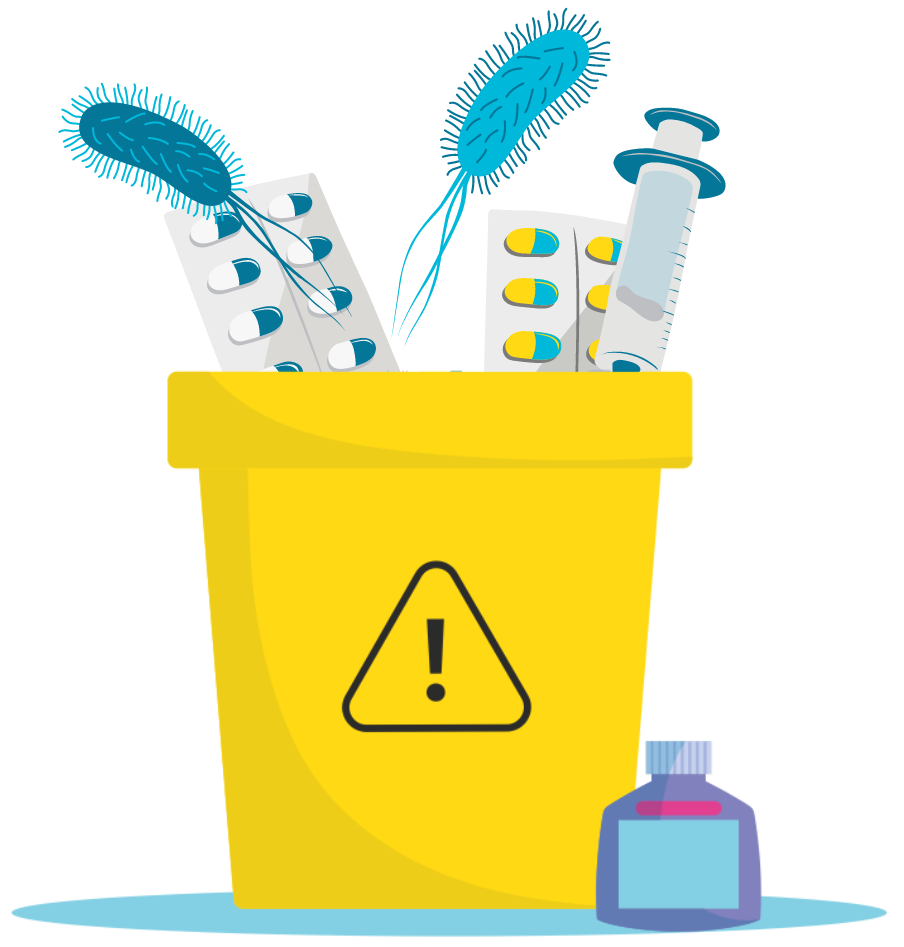ANTIMICROBIAL WASTE REDUCTION AND MANAGEMENT
Training programme for healthcare specialists and managers





Vision:
Our vision is to incorporate procurement and waste management as powerful tools in the fight against AMR. By promoting sustainable practices in the healthcare sector, we aim to reduce waste and make sure that our suppliers don’t have a negative impact with their production.
Objectives:
- Promote practices to reduce antimicrobial waste
- Raise awareness of the importance of green procurement to reduce AMR
- Guide healthcare institutions on how to green their procurement practices
Why action/education is needed:
- The AMR curricula for healthcare professionals and health managers currently lack sufficient emphasis on antimicrobial waste management.
- Green procurement is not yet widely adopted in Europe and is often viewed as a novel concept.
- While some countries have made efforts to address AMR through waste management, not all health systems or Member States have prioritised this issue.
What this project will achieve:
We will empower healthcare professionals and health managers with the tools they need to identify practices that generate excessive waste, and provide them with the necessary resources to address this issue.

Erik Ruiz
Work package leader
Health Care Without Harm (HCWH) Europe

Camille Lassalle
Work package coleader
Health Care Without Harm (HCWH) Europe
Mission statement:
“Waste management is often under considered area in the prevention of AMR, but improper disposal of antimicrobial contaminated waste can promote AMR development in the environment. As hospitals and healthcare workers are key users of antimicrobials and often reserve antibiotics, it is important that we mobilize them to enhance waste management practices and help prevent the spread of AMR.”

Funded by the European Union. Views and opinions expressed are however those of the author(s) only and do not necessarily reflect those of the European Union or the Health and Digital Executive Agency (HaDEA). Neither the European Union nor the granting authority can be held responsible for them.
